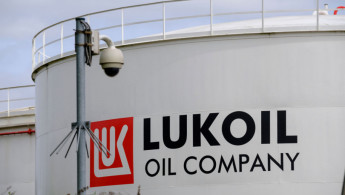Iraq investigates corruption in Russia's Lukoil 'chemical waste contract' in Basra
Iraq's Commission of Integrity has revealed it is investigating a major corruption case related to thousands of barrels of poisonous substances that should have been destroyed by Russia's state-owned oil company of Lukoil in the southern province of Basra over the past decade.
The commission in a statement last Wednesday announced that the operation was conducted in cooperation with Iraq's intelligence in Basra.
"The substances are poisonous and pose threats to the security and safety of people and the public health in Iraq. The substances include 6540 barrels stored in the open air at the Lukoil site in West Qurna," the statement reads.
"There is a contract worth US$19 million for the destruction of the materials within the years of 2013-2016, but they were not destroyed until the time of the operation. The Basra Environment Commission has also fined the company on a regular monthly basis," the commission's statement added.
West Qurna-2 is one of the world's largest oilfields located 65 kilometres northwest of Basra. According to Lukoil's website, the company has been operating in the West Qurna 2 oil field since 2010, and the first oil production in March 2014. The company has a contract with Iraq for a period of 25 years and aims to increase production by 800,000 bpd at the end of 2024.
The commission clarified that the substances have been imported to Iraq as per a contract between Lukoil and a British company without naming it.
"The substances are used in the process of extracting crude oil, and after usage, they change into dangerous chemical waste. The British company has not fulfilled its duty according to the contract for returning the waste and getting rid of them in Germany," the commission said.
The commission stressed that an investigation into the case is going on and the chemical waste has been confiscated at Lukoil's site according to legal procedures.
Combined, Rumaila and West Qurna produce about half of the crude coming out of Iraq, which sits on the fifth-largest oil reserves in the world.
Iraq's oil ministry, as well as an Iraqi lawmaker from the parliament's integrity commission, did not respond to requests for comment about the corruption case or any role in any investigations.
Decades of war and corruption have made Iraq face serious environmental problems, including poor water quality, soil salinity, air and water pollution, climate change impacts and the threat of water shortages.
Iraq ranked 157 out of 180 countries in Transparency International's corruption perceptions index in 2022.





 Follow the Middle East's top stories in English at The New Arab on Google News
Follow the Middle East's top stories in English at The New Arab on Google News


